 Opening Ceremonies
Opening Ceremonies
Dr. Zhang, can you tell us a bit about what led you to do breast cancer research?
My mother was diagnosed with ER+ Stage II breast cancer in 2012. She is still undergoing treatment and luckily everything looks fine now. But as a breast cancer researcher, I know she is still at risk of recurrence, just as many other breast cancer survivors. Therefore, curing breast cancer, specifically metastatic breast cancer, has become the major focus of my research. As a co-survivor, I am committed to providing better outcomes for breast cancer patients like my mother.
On The Route
Since we’ve got some time, could you tell us a bit about your current research?
Our research is focused on a single question: How we can harness the immune system to fight breast cancer? The immune system has the ability to kill tumor cells. However, tumors have learned to “hide” using help from cells that “turn off” the immune system (immunosuppressive cells) allowing the tumor to survive. In our work published in Nature Cell Biology we showed that targeting the immunosuppressive cells allows the immune system to do what it should be doing – killing tumor cells.
This approach will undoubtedly affect treatments relying on the immune system, including immunotherapies and some chemotherapies. We will continue to investigate how to target these immunosuppressive cells so that other therapies will work more efficiently. We will study how metastatic tumors differ from primary tumors in terms of recruitment of these immunosuppressive cells, helping us identify more effective strategies against metastatic breast cancer.
At Camp
Now that we’ve made it “home” for the night and are enjoying the support of our crew, can you tell us how your work would be affected without Komen funding?
Komen research dollars were instrumental in establishing my work in immunotherapy. Komen not only funded our research, but also allowed me to assemble a team of senior scientists with the necessary expertise to advise us on the development of our research. This is tremendously important for a new lab to start in an unfamiliar field. I am very grateful and hope to continue to make contributions in this field to reward Komen’s support!
Day 2
What is the potential impact of this research for breast cancer patients?
I believe this approach can improve the ability of the immune response to defend itself against the tumor. An immune system capable of attacking tumor cells could also be effective at killing any tumor cells that have returned (recurrence) or that have spread (metastasized). To enhance anti-tumor immunity would allow us to enhance the effectiveness of several other therapies. We are investigating several different ways of achieving this goal, and working on getting one of these approaches to the clinic as soon as possible.
Cheering Station
Look at all of these enthusiastic supporters out along the route! Are you involved in any efforts related to cancer/breast cancer, outside of your lab?
Over the last four years, I have organized a breast cancer education program. The program invites breast cancer researchers at the Texas Medical Center (including Baylor College of Medicine, MD Anderson Cancer center and many other institutions) to a retreat where they present their research and receive feedback from faculty. The retreat also includes a nationally renowned keynote speaker every year.
To bring the patient voice to research, I have served as the Activity Director for the annual Metastatic Breast Cancer Conference. This nationwide conference provides a platform for patients, advocates, clinicians, and scientists to exchange ideas and discuss the most demanding needs and concerns for metastatic breast cancer patients.
Mile 59
The finish line is in sight! Can you tell us about a defining moment when you realized the impact our work has in the fight against breast cancer?
I am so proud of our team and that we have successfully established a research program and developed interdisciplinary expertise which can be quite the challenge. We have worked to know a lot about breast cancer cells themselves. Now we also know something about the “good” and “bad” immune cells that have made their way inside the tumors. The combination of this knowledge has greatly broadened our research scope and revealed several new opportunities. We have seen dramatic effects of the immune system on tumor progression. In some of our experiments, an unleashed immune system can sometimes completely eradicate an aggressive breast tumor. If this effect can also be realized in patients, it would vastly accelerate our progress of curing breast cancer.

Dr. Zhang and his mom at Yellowstone in 2013, one year after her diagnosis and surgery.
Closing Ceremonies
Thanks for walking us through your research, Dr. Zhang! Any final thoughts you’d like to share with our walkers, crew and supporters?
We are in the process of understanding how the rest of breast cancers resist or become resistant to current therapies. We believe we have some promising findings and hopefully in the near future we will be able to address this question for all patients.
As a co-survivor, I remember the side effects of my mother’s treatment. Conversations with advocates have opened my eyes to the real needs and hopes for patients, which should always be our top priority in pre-clinical research. These interactions help me gauge the importance of our findings and help us decide the right direction.
Dr. Xiang Zhang is an Assistant Professor at the Lester and Sue Smith Breast Center at Baylor College of Medicine. Since 1982, Susan G. Komen has funded $920 million in breast cancer research, second only to the U.S. government and more than any other nonprofit in the world. Learn more here.
Dr. Zhang was also featured in our April blog post Behind the Science.
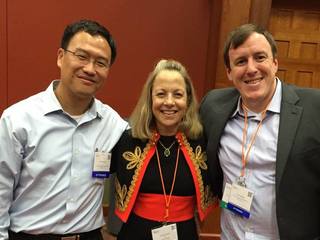
Dr. Zhang meets with patient advocates Susan Rafte and Josh Newby at the Annual SABCS meeting.
Pit Stop
Three things to know about Dr. Zhang:
- My mom is excited that my research can reach a broader advocacy audience and would like to express her gratefulness to Komen.
- Both of my maternal grandparents were biomedical scientists. I lived with them throughout my childhood due to my parents’ busy working schedules. They deeply influenced me and stimulated my interest in science. They also encouraged me to come to the US to pursue my science dream. They both passed away five years ago, but will be forever live in my heart.
- Although my wife, Iris Zhang, is not a scientist, she has always been a fan of scientists. She attended my seminars whenever she could and helped me prepare my talks. She takes great care of our family while I work hard in the lab. Her support is instrumental to my research career!
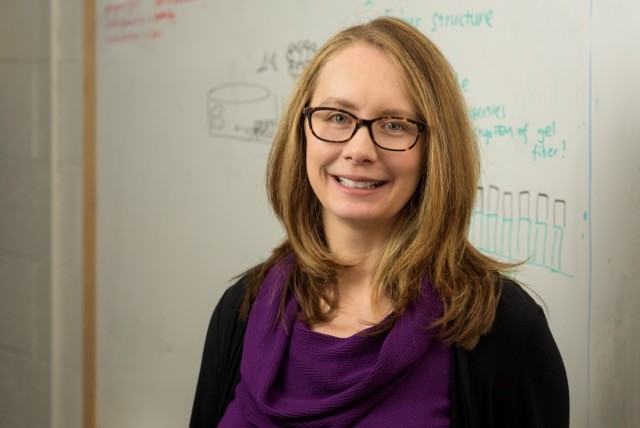
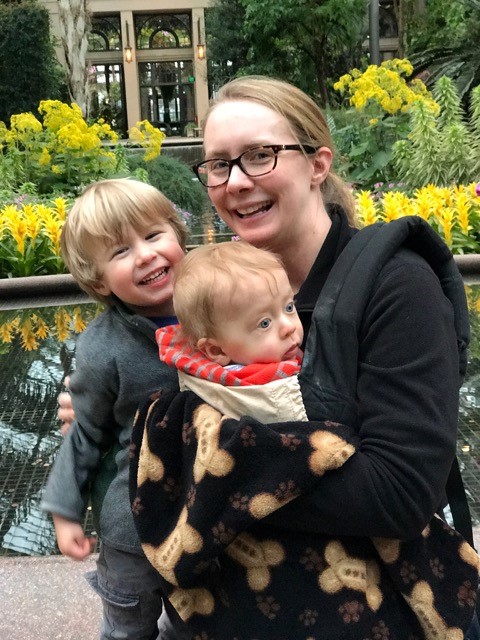
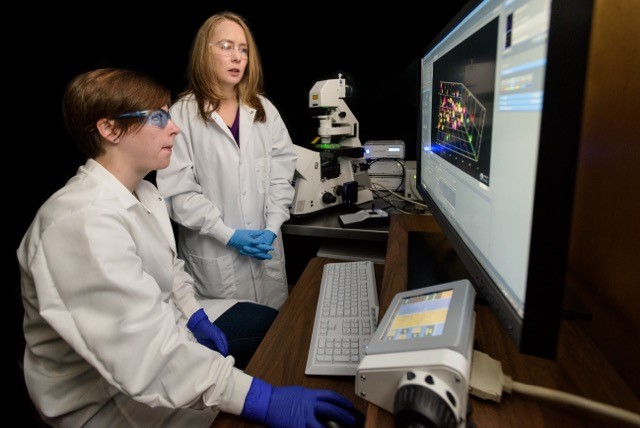
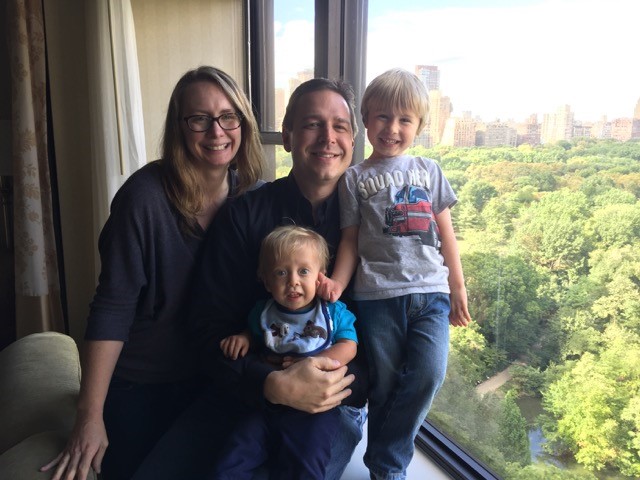
 Opening Ceremonies
Opening Ceremonies
